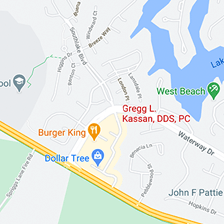When to Begin Dental Care for Your Child
January 31st, 2024

Children’s oral health differs from that of adults in a variety of ways. Dr. Kassan and our team want you to understand how you can provide the best care for your son or daughter’s teeth. It’s essential to understand what your child will need from you when it comes to his or her oral health in those first few years.
In-home dental care begins when your baby starts to show signs of developing the first tooth. We recommend that you bring your child to our Montclair office between the ages of one and two. Dr. Kassan will take a look at your child’s tooth development and gums during this first scheduled appointment.
The initial appointment with your little one is designed to get him or her accustomed to our office. We recommend allowing your child to be in the exam room alone with us during the first visit in order to become comfortable with our staff at an early age.
We will go over several general matters during your child’s first visit:
- Look for signs of decay or other tooth or gum problems
- Make sure your youngster doesn’t have gum disease or cavities
- Examine your child’s bite, and check for misalignment that could lead to problems in the future
- Clean the teeth, and apply fluoride if your son or daughter is old enough
- Talk to you about proper oral health care for your
- Give you some tips for brushing and flossing your child’s teeth
- Answer any questions you may have about caring for your little one’s teeth
Once your child is old enough for his or her first visit to the dentist, you should begin to schedule regular cleanings every six months. If any problems arise before a scheduled appointment, call our Montclair location and we will be happy to answer any questions you may have.
Remember, creating healthy oral health habits with your child early on is crucial. We’re here to guide you through this process and make sure your child is healthy and happy.




